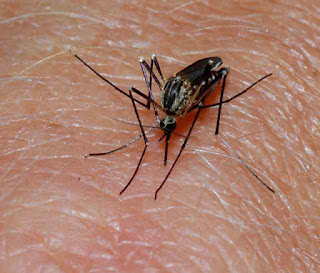 |
| Ebola virus disease, Ebola: Symptoms,Treatment and Reasons |
What is Ebola?
Ebola is a disease caused by the virus of the same name, and its main symptom is bleeding fever, which causes bleeding in the internal organs. Virus is native to Africa, where sporadic outbreaks occur for decades.
This is a serious and often fatal disease, with a fatality rate of up to 90%, according to the World Health Organization (WHO) statistics. Ebola spreads through direct contact of infected animals or people's blood, body fluids and tissues. Severely ill patients require supportive treatment. During outbreaks, people at risk of infection are in close contact with health care professionals, family members and other sick people and the deceased patients.zindagi shayari
The discovery of the Ebola virus in 1976 and there have been spo
radic outbreaks since then. Earliest records of Ebola virus were found in monkeys, chimpanzees and other non-human primates living in Africa. An Ebola stress has been found in monkeys and pigs in the Philippines - however, the Philippine virus does not cause the disease in humans. The name of the disease is named after the Ebola river in the Democratic Republic of Congo, where the virus was first detected.
Today, it is believed that the bat is responsible for transmitting the virus to other animals. In this virus does not cause disease. But a fruit is eaten by a bat and is found by another animal which can already start the epidemic. Monkeys, deer and porpine are also affected by the disease. It is possible to contact the virus by manipulating tissue of an animal killed by bot-infected places (such as mines and caves) or by killing Ebola.
type
There are six subtypes of Ebola virus. The five best known are:
A sixth tension of the virus was detected recently, in which the first recorded in the Democratic Republic of Congo was recorded.
All these subtypes are found in Africa, except Ebola-Reston, which is found only in the Philippines. Ebola-Reston virus is also the only subtype that will not cause disease in humans because it only affects animals.
Causes
It is possible to contract Ebola through direct contact with an infected or human animal's fluid.
These include blood, saliva, semen, vomiting, urine or stool.
According to the World Health Organization, it is also possible to acquire the virus by getting infected with infected or dead wild animals. There is some evidence that Ebola virus can be transmitted from non-human primates to non-human primates via air, such as the monkey from the monkey. However, no definitive study has proved this.
An infected person is usually not infectious until he develops symptoms. Family members often get infected while taking care of sick or dead relatives.
If they do not use protective equipment, such as surgical masks and gloves, then professionals can contact the virus. It is not highly contagious, just diagnose the patient and isolate it.
risk factor
For most people, the risk of Ebola contraction is less. However, the probability increases if you:
Visit areas that have Ebola outbreak
Organizes research on animals, mainly from Africa or the Philippines.
Provides medical or personal assistance to infected persons
It prepares to bury the infected people, because the body of infected people can still transmit the disease.
signs of Ebola
Patients who are exposed to Ebola virus should begin showing symptoms two to 21 days after exposure to the disease, which starts fast. Early symptoms are a common flu infection. View
Ebola virus disease, Ebola: Symptoms,Treatment and Reasons
fever
Headache
Sore throat
Pain in joints and muscles
Weakness
As Ebola moves forward, the symptoms become more serious. End-stage Ebola symptoms may include:
Vomiting
Diarrhea
Redness in eyes
Swelling of genitals
Internal and external bleeding (some patients may get bleeding from eyes, nose, mouth, ears or rectum)
Explosion or bleeding with skin and mucous membranes
Seek medical help
As long as you do not have direct contact with the body fluids of an infected person or animal, the probability of getting the Ebola virus or its exposure is very low.
If this is a doubt, make an appointment for the emergency room and discuss the matter. Those who have visited the risk areas should seek medical attention only if symptoms appear. Experts who can diagnose Ebola are:
General clinic
infectious disease
Nursing Professional
what can you do
Before consulting, to help the doctor know the reason for your symptoms, write a list that answers the following questions:
What are the symptoms you have? When did they start?
Have you recently visited Africa? If so, which part?
If you have recently visited Africa, have you contacted monkeys?
Have you recently visited underground caves or mines in Africa?
Do you work in a laboratory that uses monkeys from research in Africa or the Philippines?
If possible, bring a family member or friend with you. Sometimes it may be difficult to remember all information provided in the hospital or during the consultation. Someone who goes with you can forget or forget something you missed.
Diagnosis of Ebola
It can be difficult to tell whether there is an analysis of only symptoms of Ebola in a person. The medical team can first test for other diseases that have similar symptoms like Ebola, such as:
Cholera
Hepatitis
Malaria
brain fever
Typhoid fever.
If Ebola is suspected, then medical staff can do a special investigation to identify the virus, the immunosorbent assay (ELISA) associated with enzyme.
People suffering from Ebola should be immediately separated from the public to help prevent the spread of the virus. Health professionals and others who come in contact with the patient should wear protective equipment such as gloves, hats and masks.
Ebola virus disease, Ebola: Symptoms,Treatment and Reasons
Ebola treatment
There is no cure for Ebola. Only treatments available are designed to help reduce symptoms. These may include:
Oxygen therapy
Intravenous fluid
blood transfusion
Shock treatment drugs
Medicines for pain
Once the illness is cured, one becomes immune to the Ebola virus. In this way, you can come in contact with other people who have no major risk of disease.
Possible complications
As Ebola has progressed, this may be the reason:
Multiple organ failure
Severe bleeding
jaundice
Delirium
Seizure
Unconscious state
Shock.
One reason the viruses are so fatal that they disrupt the ability to protect the immune system.
For the survivors, the recovery is slow. It can take months to gain weight and strength, and the virus can remain in the body for weeks. People can try:
Hair fall
Sensory changes
Swelling of the liver (hepatitis)
Weakness
Fatigue
Headache
Swelling of eyes
Testisitis.
Prevention
The following precautions can help prevent infection and spread of Ebola virus.
Avoid outreach areas
Before traveling to Africa, learn more about the current epidemic and talk to the doctor about possible risks.
Wash your hands often
Like other infectious diseases, one of the most important preventive measures, wash your hands often. Use soap and water or use 60% gel if soap and water are not available. These measures should be taken primarily for people in the risk areas
Avoid contact with infected people
Carers and healthcare professionals should avoid contact with the body fluids and tissues of the infected person, including blood, semen, vaginal discharge and saliva. People with Ebola are more contagious in more advanced stages of the disease. To interact with the patient, wear ideal gloves, masks, apron and eyes protectors.
Infected people should be separated from others. The needle used should b
e discarded and the equipment should be aborted.
Do not handle the body of infected persons
The dead bodies of people killed by Ebola are still infectious. Organized and trained teams should bury bodies using proper safety equipment
https://www.no1shayri.tk/2019/05/sexy-shayari-best-shayari.html
my neme
rajesh kushwah















